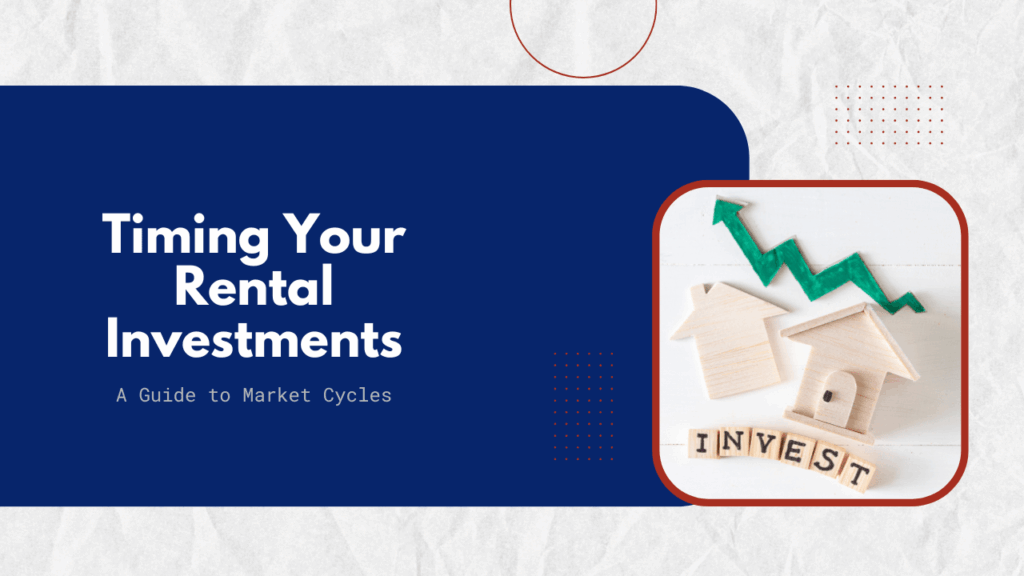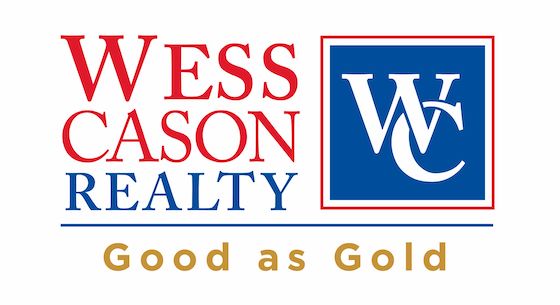
When is it the right time to invest?
That’s the question every real estate investor is asking all the time.
The market is constantly shifting, influenced by economic cycles, interest rates, demographic changes, and a multitude of other factors. The moves you make and the timeline you’re on will largely be driven by your own investment goals.
We’re helping investors work through the possibilities that can be found in any market cycle. Come with us as we explore real estate market cycles, how they impact investment decisions, and what kind of strategies can help you make the right move, no matter the phase of the market.
Understanding the Real Estate Market Cycle
Let’s start with the basic structure of real estate market cycles. The market moves in phases, and each phase offers unique opportunities and challenges for investors. These phases can be broken down into four general stages:
- Expansion
In this phase, the economy is growing. Employment rates are rising, consumer confidence is high, and demand for both residential and commercial properties is increasing. Real estate values typically rise during this period. Developers and investors are keen to take advantage of rising prices and lower interest rates. - Peak
This is the top of the market cycle. Prices have reached their highest point, and while the market may still feel healthy, it’s often at this point that signs of overheating appear. Interest rates might start to climb, affordability declines, and buyers become more cautious. As prices plateau or begin to dip, smart investors may recognize that a correction is coming. - Contraction
In the contraction phase, which is also called a recession (but who likes to use that word?), the market starts to slow down. Property prices either stabilize or decline as demand decreases. Sellers are reluctant to lower prices, but buyers have the upper hand. Economic factors such as rising interest rates, inflation, or a slowdown in job growth can contribute to this phase. Many investors might back off, waiting for the market to rebound, but there can be strong opportunities to purchase undervalued properties. - Recovery
After a market downturn, the recovery phase begins. During this time, the economy starts to pick up, but the housing market might still be in a sluggish or uncertain state. Buyers and sellers are more cautious, and while prices might not shoot up immediately, steady growth is on the horizon. This is often when long-term investors can make strategic buys at discounted prices, preparing for the next expansion phase.
When Should You Invest?
The key to successful real estate investing is knowing when to make your move, and this depends heavily on the stage of the market cycle. Let’s break down each phase and discuss how investors can take advantage of each one.
Expansion Markets and Momentum
During an expansion phase, the market is growing rapidly, and values are rising. Interest rates are often lower, and there’s strong demand for housing, both for buyers and renters. It’s easy to feel like you’re missing out if you don’t get in during this period, and for many investors, it’s a great time to buy. However, it’s important to be cautious.
With increasing demand for housing, rental properties can provide steady cash flow. Rent prices tend to rise as supply struggles to meet demand. Investing in multi-family units can be particularly lucrative in this phase.
In areas with booming populations, developers are often active. If you have the capital, investing in new builds or development projects can yield large returns.
Peak Markets and Your Exit Plan
The peak phase can be a tricky time for real estate investors. Prices are at their highest, and while it can feel like there’s still room to grow, the market is typically nearing its limit. For some, the peak is a great time to sell or exit the market, capitalizing on high prices before the inevitable downturn.
If you’ve already invested in a property and have seen substantial gains, the peak might be a good time to sell and take profits. It’s essential to monitor key indicators like interest rates and economic forecasts. If you sense a downturn is imminent, liquidating assets can help you avoid potential losses when prices drop.
In this phase, it’s important to remember that market dynamics are shifting. As an investor, maintaining liquidity can give you the flexibility to act quickly once the market turns.
Contraction Markets and Seeking Deals in the Downturn
The contraction phase can feel like a time to step back and wait, but there are often hidden opportunities in these periods of market correction. Prices are generally lower, and while there might be fewer buyers, there are often motivated sellers who are looking to offload their properties before prices fall further.
This is the phase where investors who have cash on hand can scoop up undervalued properties. In a downturn, properties may not be moving quickly, and sellers may be more willing to negotiate on price. For long-term investors, buying during a contraction can set you up for significant returns once the market recovers.
While the contraction phase often scares off many investors, it’s one of the best times to enter if you have a long-term outlook and the ability to weather short-term volatility.
Recovery Cycles and Getting Ready to Do It All Again
 The recovery phase is one of the most promising times for investors. The market is still relatively slow, but signs of improvement are clear. If you time it right, buying during the recovery phase can allow you to acquire properties before prices start to climb again.
The recovery phase is one of the most promising times for investors. The market is still relatively slow, but signs of improvement are clear. If you time it right, buying during the recovery phase can allow you to acquire properties before prices start to climb again.
This is the time to buy strategically for long-term growth. Properties purchased during the recovery phase tend to appreciate as the market heats up again. You may not see immediate gains, but your investment will likely benefit from the inevitable rise in demand.
You also want to look for emerging neighborhoods or cities that are beginning to show signs of recovery. Areas that are seeing new infrastructure projects, job growth, or population migration can be great places to invest in the early stages of recovery.
Opportunity can always be found in any market. The nuance is in knowing how to respond. We can help. Please contact us at Wess Cason Realty. We provide real estate and property management services in Charlotte and the surrounding areas in Mecklenburg, Union, and Cabarrus County.

 Wess Cason, Owner/Broker
Wess Cason, Owner/Broker Jonathan Cason, Director of Operations
Jonathan Cason, Director of Operations
 Bethany Martin, Team Coordinator
Bethany Martin, Team Coordinator Jason Suitor, Maintenance Operations Manager
Jason Suitor, Maintenance Operations Manager Alyssa Cason Tobin, MBA
Alyssa Cason Tobin, MBA